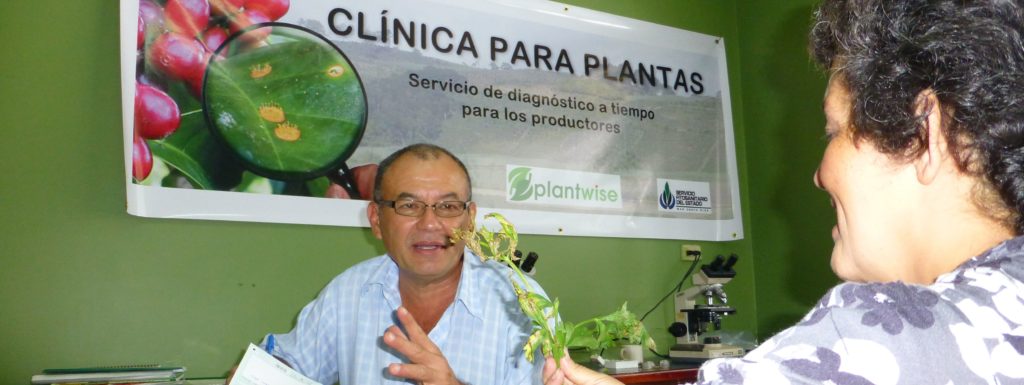Students celebrate Master’s degree graduation at university ceremony
Agricultural professionals from 10 countries received their graduation certificates on Monday 23 November 2015 at a ceremony to celebrate their successful completion of the first University Neuchâtel-CABI jointly coordinated integrated crop management degree. The Masters in Advanced Studies in Integrated Crop Management (MAS in ICM) programme was launched earlier this year by CABI in partnership…
Update: New Pest & Disease Records (25 Nov 15)
We’ve selected a few of the latest new geographic, host and species records for plant pests and diseases from CAB Abstracts. Records this fortnight include the first record of stink bugs in rice farming in the Brazillian Maranhão, the first report of Aspergillus parvisclerotigenus rot in garlic bulbs from Pakistan and new records of the smut…
Update: Plant Health News (18 Nov 15)
Here’s a taste of some of the latest stories about plant health, including the synopsis, productivity and efficiency of smallholder teff farmers in Ethiopia, the implementation of a project to control fruit fly in Ecuador, and the production and saving seed in Papua New Guinea. Click on the link to read more of the latest plant…
CABI builds simulation to share plant health knowledge
CABI has built its first simulation to help agricultural advisors share knowledge on plant health with smallholder farmers across the world, and has plans to build more. Plant Doctor Simulator is a fun and engaging way for plant health advisors – also known as plant doctors – to examine virtual 3D plants using smartphones or…
Update: New Pest & Disease Records (12 Nov 15)
We’ve selected a few of the latest new geographic, host and species records for plant pests and diseases from CAB Abstracts. Records this fortnight include a report of papaya mealy bug, Paracoccus marginatus in mulberry in West Bengal, the natural mortality of Tuta absoluta eggs in Argentina and Italy with the first record of Encarsia…
Plantwise Vietnam welcomes the Chairman, Governing Board of CABI
Report by Dr Sivapragasam Annamalai, CABI Country Coordinator for Plantwise Vietnam Mr. Philip Walters, the Chairman of the Governing Board, CABI visited a plant clinic in Tan My Chanh Village, My Tho City, Tien Giang Province, south Vietnam on the 2nd November, 2015. It was his first ever visit to a plant clinic in operation. During the…
Bolivia: control de la mosca de la fruta en chirimoya
La mosca de la fruta es una plaga de mayor importancia en América latina, y solo en Bolivia, esta plaga causa pérdida de 113 millones de dólares cada año a los productores de frutas y hortalizas. Los productores y productoras de chirimoya pueden revisar la Lista Verde producida por Plantwise que brinda asesoramiento sobre la…
Update: Plant Health News (04 Nov 15)
Here’s a taste of some of the latest stories about plant health, including huge losses in Bolivia caused by fruit flies, arboreal breeding behaviour of coconut rhinoceros beetle in Guam and a new technology that could help distinguish the European corn borer from other look-alike species. Click on the link to read more of the latest…
Factsheet of the month: November 2015 – Using natural nematicide plants against banana nematodes
Researchers at Queen’s University, Belfast, have developed a new method to control the parasitic nematodes that devastate banana crops and cause billions of dollars of crop losses annually. It is hoped that this new technology will reduce these losses, boosting the incomes of subsistence farmers in developing countries. Nematodes are notoriously difficult to control, and…



